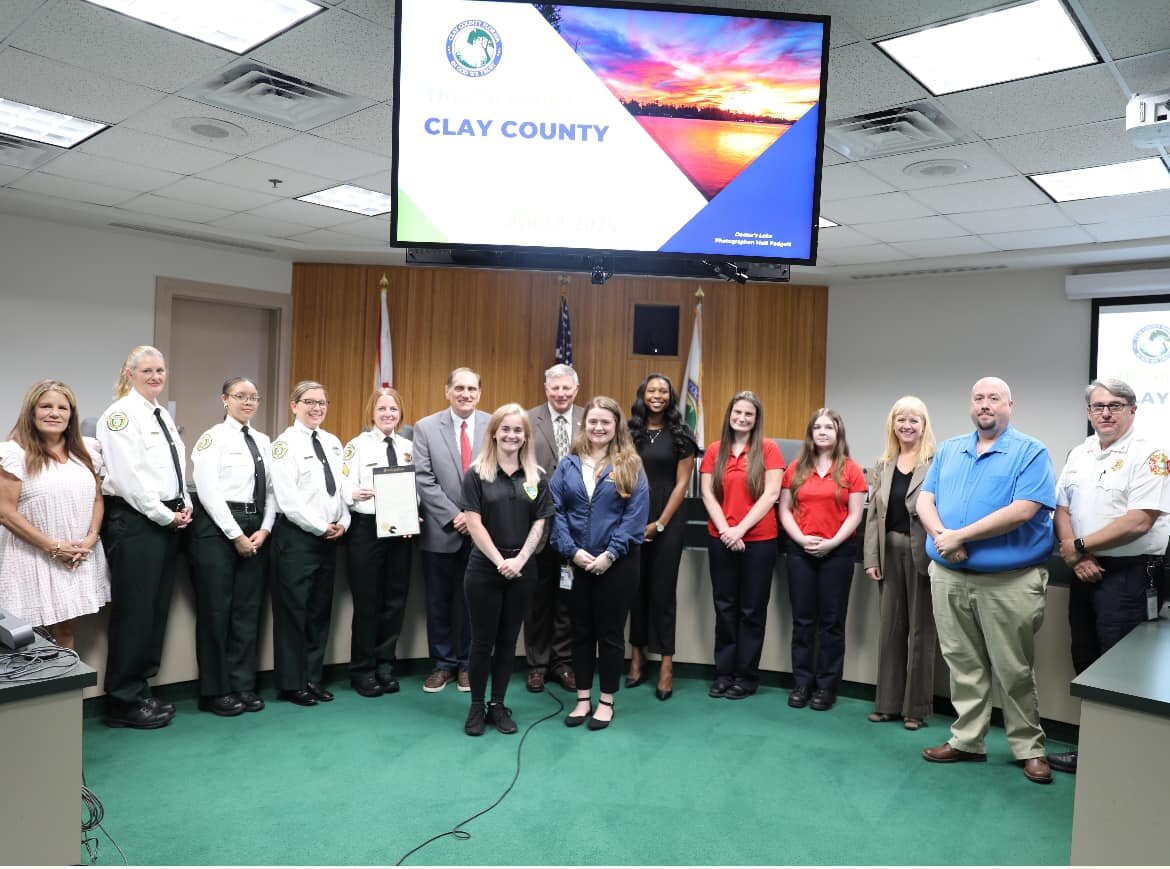Calling a need for peer support for 911 dispatchers, other first responders
CLAY COUNTY – Out of the thousands of calls Mary Jensen answered throughout her 20-year career as a 911 dispatcher in South Florida, the memory of a singular gunshot still rings out with haunting …
This item is available in full to subscribers.
Attention subscribers
To continue reading, you will need to either log in to your subscriber account, below, or purchase a new subscription.
Please log in to continueDon't have an ID?Print subscribersIf you're a print subscriber, but do not yet have an online account, click here to create one. Non-subscribersClick here to see your options for subscribing. Single day passYou also have the option of purchasing 24 hours of access, for $1.00. Click here to purchase a single day pass. |
Calling a need for peer support for 911 dispatchers, other first responders
CLAY COUNTY – Out of the thousands of calls Mary Jensen answered throughout her 20-year career as a 911 dispatcher in South Florida, the memory of a singular gunshot still rings out with haunting clarity.
“An elderly gentleman had called one afternoon,” Jensen said. “He asked for the police to respond. When I tried to question what he needed, he just said to send somebody right away and hung up.”
Jensen called back and asked the woman who had picked him up to quickly locate him.
“As she walked into his bedroom, that’s when the gunshot went off. He had taken his own life,” Jensen said. “I can still hear that sound. I can still hear her scream.”
National Public Safety Telecommunicators Week, which is being celebrated through April 20, is not only the ideal time to recognize current and former 911 dispatchers like Jensen but also to ensure they have the proper tools to process the traumas they face every day.
Emergency dispatchers become part of traumatic events unfolding in real-time. That constant weight takes an emotional toll that can lead to damaging and sometimes life-threatening behaviors. Jensen said she’s seen the negative impacts of the job manifest differently among her friends.
“Some turn to alcohol, and some turn to suicide,” she said.
Statistically, first responders and dispatchers have higher rates of relationship issues, alcohol or drug abuse, and suicide attempts and completions. In fact, more than 1,250 first responders in the United States have tragically taken their own lives since 2018, according to Blue H.E.L.P. Eighty-one of those were in Florida. However, Jensen said that seeking help – especially from a peer – can make a significant positive difference in dispatchers’ mental health.
Jensen said she reached her breaking point on the day of that suicide, but that a colleague, who happened to be part of their organization’s critical incident stress management team, recognized she was upset and took her on a walk. That simple outreach from a peer proved remarkably effective in helping Jensen process the trauma and feel supported. No longer an emergency dispatcher, Jensen has come full circle as one of dozens of peer specialists on the other line when a first responder needs help. Jensen co-founded and serves as chief operations officer for Zero Life Center, one of several providers that administer a First Responder Peer Support program developed and managed by LSF Health Systems. The program employs specially trained peer specialists, who are current or former first responders or military members, to provide confidential and free support to first responders and their family members across 20 counties in Northeast and Northern Central Florida, including Clay County. This includes dispatchers, police officers, firefighters, EMTs and corrections officers. By calling 211, a first responder can talk privately with someone who has been in their shoes.
Dr. Christine Cauffield, CEO of LSF Health Systems, said with the split-second decisions dispatchers make each day, it is only natural that they carry a lot of emotional weight on their shoulders.
“With this program, they have a free, confidential way to release some of that burden,” Cauffield said. “They are there for us ‘first,’ so our program is designed to be there for them ‘now.’”
For more information on First Responder Peer Support, first responders can visit StayFitforDuty.org or call 211.








